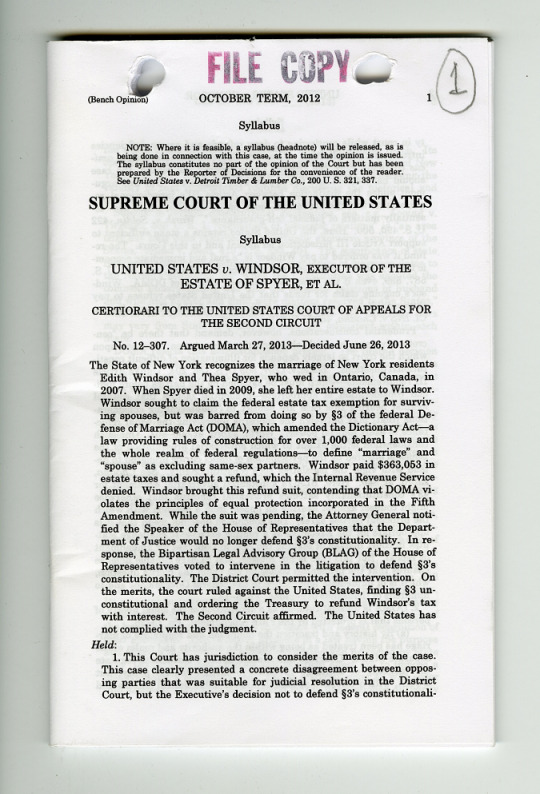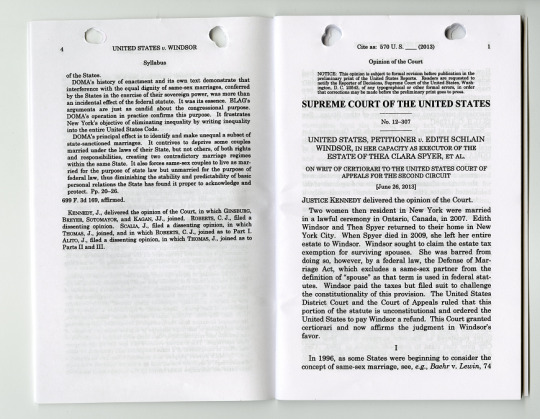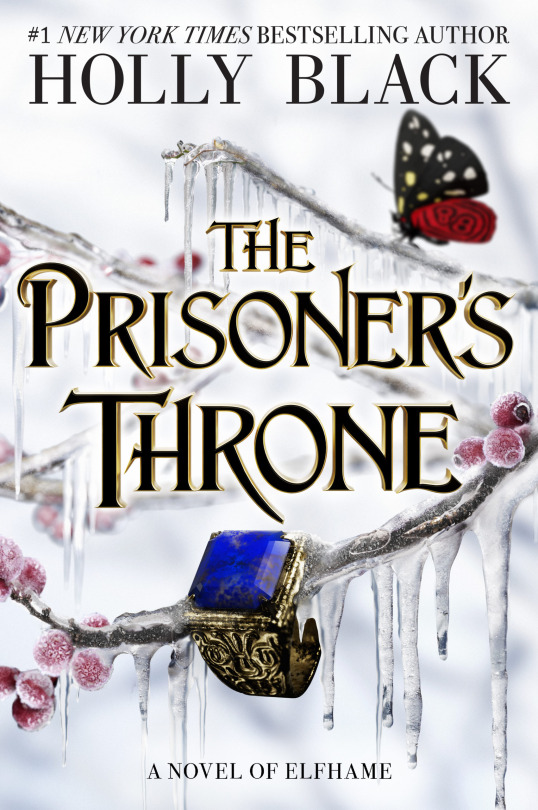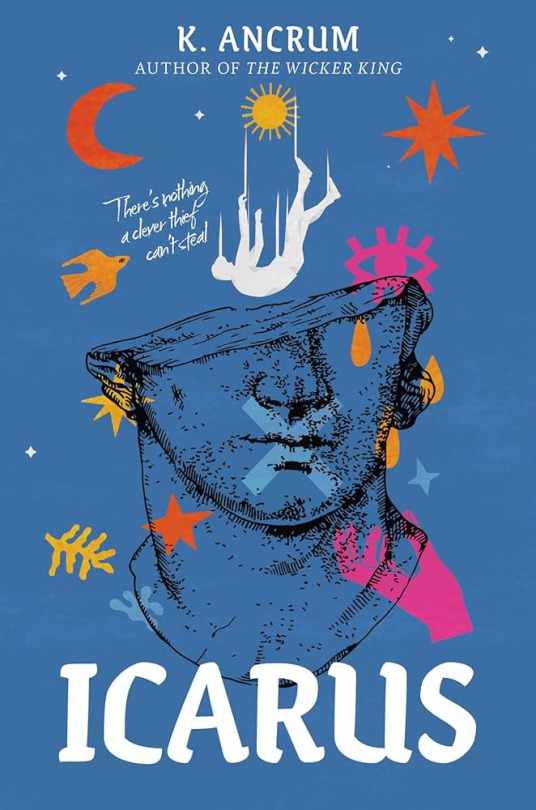#Ontario Court of Justice
Text

"THE CHIEF JUSTICE PUTS THOUSANDS OF BIRDS TO FLIGHT," Toronto Globe. August 28, 1933. Page 7.
----
Things were literally all aflutter at the Canadian National Exhibition for a short time Saturday afternoon, particularly in and about the Grand Plaza of the Big Fair. But all the commotion had a perfectly logical explanation it was but the start of the annual homing-pigeon race from the C.N.E., when some thousands of birds were given their freedom for the race to the home lofts. As to the part the Chief Justice of Ontario played in putting these thousands of birds to flight, he had simply consented to officially start the race. Illustrations above show: At the left, a few, a very few, of the birds caught in flight after the cages were opened; at the right, the Chief Justice, Sir William Mulock, seen with the pigeon which he released as a signal that the race was formally started.
#canadian national exhibition#grand plaza#fall fair#toronto#supreme court of ontario#chief justice#grand opening#great depression in canada
0 notes
Text
That said, the Supreme Court judgment, written by the Honourable Justice Mahmud Jamal on July 26, was blunt and withering in its condemnation of the Crown’s failure to honour the Robinson Huron and Superior Treaties noting “for almost 150 years, the annuities have been frozen at a shocking $4 per person, after the first and only increase was made in 1875. Today, in what can only be described as a mockery of the Crown’s treaty promise to the Anishinaabe of the Upper Great Lakes, the annuities are distributed to individual treaty beneficiaries by giving them $4 each.”
Elsewhere in the judgment, Justice Jamal tersely rejected Ontario’s claim to sole authority to determine annuity increases saying, “For well over a century, the Crown has shown itself to be a patently unreliable and untrustworthy treaty partner in relation to the augmentation promise. It has lost the moral authority to simply say ‘trust us’.”
Today’s judgment also sets new precedents for Canadian Treaty interpretation, clarifying the role of regular trial courts and appeal courts in determining treaty rights and obligations. The Robinson Huron and Superior litigation featured months of testimony from Elders, community knowledge holders, and historians, all working to give the court an understanding of the common intention that the Anishinabek and British came to that was then expressed in the Treaty. Justice Jamal called it a “robust and highly involved trial process.” Justice Jamal echoed that the Ontario appeals court interference by a higher court in a process like that would “undervalue” the trial judge’s process and would suggest that “the involvement of the Treaty partners, particularly the Indigenous signatories, did not make the trial judge better situated to decide the case.” Or put another way, the time that First Nation Elders and citizens took the time to tell the first judge the whole story should be respected.
488 notes
·
View notes
Text
A First Nation in northwestern Ontario that has faced decades of mercury poisoning is suing the provincial and federal governments, arguing they've failed to protect its treaty rights.
Asubpeeschoseewagong Netum Anishinabek First Nation — known as Grassy Narrows — filed the lawsuit in Ontario's Superior Court of Justice on Tuesday morning.
It argues the governments have violated their duties under Treaty 3 by failing to protect against or remedy the effects of mercury contamination in the English-Wabigoon River system.
The allegations in this lawsuit haven't been tested in court.
Contamination of the river system dates back to the 1960s and '70s when Dryden's paper mill in northwestern Ontario dumped an estimated nine tonnes of mercury into the water.
Continue Reading.
Tagging: @newsfromstolenland
#mercury poisoning#Environmental Racism#Indigenous#First Nations#Doug Ford#Ontario#Justin Trudeau#cdnpoli#canada#canadian politics#canadian news
131 notes
·
View notes
Text
A $2.5 million lawsuit alleges Ottawa police wiretapped and surveilled five of its own Black, Somali officers, hasn't told them why and accuses the service of being an institution "rife with racism and discrimination that over-polices the racialized communities it has pledged to protect."
The civil action was filed in the Ontario Superior Court of Justice by constables Liban Farah, Mohamed Islam, Abdullahi Ahmed, AhmedKhador Ali and Feisal Bila Houssein in 2023 against the Ottawa Police Services Board and three unnamed members of the Ottawa Police Service (OPS). In addition to the five officers, there are three civilian plaintiffs who are family members of two of the officers.
As first reported by CBC, the lawsuit alleges three wiretaps and a general warrant which included video surveillance were obtained "based on racist and stereotypical assumptions about Black persons of Somali origin." They don't know why the wiretap authorizations and general warrant were approved by a judge because they're sealed.
[...]
The Plaintiffs "believe that they were the subject of wiretaps for ulterior motives in breach of their Charter rights: retaliation for their complaints about racism within the OPS, their attempts to improve the OPS and stereotypes about their kinship and familial relationships," the lawsuit states.
Full article
Tagging: @allthecanadianpolitics
#mine#ottawa police service#racism#cdnpoli#canadian news#ottawa#ontario#police#cops#surveillance#wiretaps#ottawa police#anti-blackness#charter rights#police surveillance#anti-black racism#racism tw#anti-blackness tw#anti-black racism tw#cops tw#police tw
101 notes
·
View notes
Text
Outrageous and Terrifying
Have you ever had one of those days where the universe just suddenly takes a massive dump on someone you care deeply for who has been struggling through an awful situation?
That was yesterday for us.
Romana is a twenty-one year old computer science student, coming up on two years into her degree. She escaped her abusive, toxic, controlling parents in November 2021 and has been living peacefully, renting on her own for a year now.
Yesterday afternoon, her parents showed up on her doorstep with social workers and a court order for guardianship. They ordered her into their car, and acted like the fact that they hadn't called the cops yet was them being nice. They guilt-tripped her about how much they missed her for the entire ride back to their house, and then the next morning had to be talked down from taking her phone and computer away twice.
That's what guardianship means, y'all, that she's not permitted to make property decisions. She is not permitted to live where she chooses. She is not permitted to talk to who she wishes. If she attempts to make her own decisions, she risks being held in contempt of court.
They did not serve her the required notice, nor did they serve her lawyer notice. Romana and her lawyer were not contacted by mail; were not contacted by email; and were not contacted over the phone, despite all these methods of contact having been given to her parents and their lawyers.
There was no attendable court session, where evidence could presented or witnesses could take the stand. She has not been permitted her right to look a judge in the eye and say "See for yourself. Ask me what you wish. Do I seem like I'm my own person to you?"
This happened because the justice who signed the judgment did so without reading any of it. Justice Smith did not read the application, the responses from Romana's lawyer, the capacity assessment report, or even the text of the draft judgment that was signed. How in the inkstained void does that happen?
Romana is eloquent, intelligent, and a great friend. She's been stripped of nearly every right at a moment's notice due to the selfishness of her parents. Honestly, I don't really feel comfortable referring to them as her parents, as though she were some upstart teenager depending on them for everything.
In the province of Ontario, there are two adults who want to keep a de facto prisoner and discreetly got the state to rubber stamp it. That prisoner is my friend, someone I care about deeply.
Try to imagine how that feels. Please, put yourself in Romana's shoes, trapped in that absurdist nightmare. Please try to imagine a fraction of the frustration dawning on horror, the confusion dawning on fury.
Ontario has given Romana no help to pay legal fees. There's no program that will help cover it, no charity that will pitch in. I should know. I looked. I know that sounds like an insane state of affairs, but we spent weeks looking and found nothing. She's got only the resources of a college student, barely scraping by with the help of friends, her sister, and GoFundMe.
Romana is just a person. And like any person, she just wants to live a life of basic freedom and dignity.
#abuse#legal fights#legal issues#guardianship#parents#why do parents think forced contact will get them a relationship with their kids?#why are some parents so terrible?#fundraiser#trans issues#Romana's deadname is mentioned in the fundraiser link#anyone who deadnames Romana will be blocked
986 notes
·
View notes
Text
Animal Justice lawyers along with journalist Jessica Scott-Reid and Louise Jorgensen of Toronto Cow Save were successful in challenging Ontario’s ag-gag law.
Read more about it here:
20 notes
·
View notes
Text



The Supreme Court ruled that the Defense of Marriage Act was unconstitutional on June 26, 2013.
In U.S. v Windsor, SCOTUS held that the federal government could not discriminate against same-sex couples.
Record Group 267: Records of the Supreme Court of the United States
Series: Appellate Jurisdiction Case Files
Transcription:
[Stamped: " FILE COPY "]
(Bench Opinion) OCTOBER TERM, 2012 1 [Handwritten and circled " 1" in upper right-hand corner]
Syllabus
NOTE: Where it is feasible, a syllabus (headnote) will be released, as is
being done in connection with this case, at the time the opinion is issued.
The syllabus constitutes no part of the opinion of the Court but has been
prepared by the Reporter of Decisions for the convenience of the reader.
See United States v. Detroit Timber & Lumber Co., 200 U.S. 321, 337.
SUPREME COURT OF THE UNITED STATES
Syllabus
UNITED STATES v. WINDSOR, EXECUTOR OF THE
ESTATE OF SPYER, ET AL.
CERTIORARI TO THE UNITED STATES COURT OF APPEALS FOR
THE SECOND CIRCUIT
No. 12-307. Argued March 27, 2013---Decided June 26, 2013
The State of New York recognizes the marriage of New York residents
Edith Windsor and Thea Spyer, who wed in Ontario, Canada, in
2007. When Spyer died in 2009, she left her entire estate to Windsor.
Windsor sought to claim the federal estate tax exemption for surviv-
ing spouses, but was barred from doing so by §3 of the federal Defense
of Marriage Act (DOMA), which amended the Dictionary Act---a
law providing rules of construction for over 1,000 federal laws and
the whole realm of federal regulations-to define "marriage" and
"spouse" as excluding same-sex partners. Windsor paid $363,053 in
estate taxes and sought a refund, which the Internal Revenue Service
denied. Windsor brought this refund suit, contending that DOMA vi-
olates the principles of equal protection incorporated in the Fifth
Amendment. While the suit was pending, the Attorney General notified
the Speaker of the House of Representatives that the Department
of Justice would no longer defend §3's constitutionality. In re-
sponse, the Bipartisan Legal Advisory Group (BLAG) of the House of
Representatives voted to intervene in the litigation to defend §3's
constitutionality. The District Court permitted the intervention. On
the merits, the court ruled against the United States, finding §3 un-
constitutional and ordering the Treasury to refund Windsor's tax
with interest. The Second Circuit affirmed. The United States has
not complied with the judgment.
Held:
1. This Court has jurisdiction to consider the merits of the case.
This case clearly presented a concrete disagreement between oppos-
ing parties that was suitable for judicial resolution in the District
Court, but the Executive's decision not to defend §3's constitutionali-
[page 2]
2 UNITED STATES v. WINDSOR
Syllabus
ty in court while continuing to deny refunds and assess deficiencies
introduces a complication. Given the Government's concession, ami-
cus contends, once the District Court ordered the refund, the case
should have ended and the appeal been dismissed. But this argu-
ment elides the distinction between Article Ill's jurisdictional re-
quirements and the prudential limits on its exercise, which are "es-
sentially matters of judicial self-governance." Warth v. Seldin, 422
U. S. 490, 500. Here, the United States retains a stake sufficient to
support Article III jurisdiction on appeal and in this Court. The re-
fund it was ordered to pay Windsor is "a real and immediate econom-
ic injury," Hein v. Freedom From Religion Foundation, Inc., 551 U. S.
587, 599, even if the Executive disagrees with §3 of DOMA. Wind-
sor's ongoing claim for funds that the United States refuses to pay
thus establishes a controversy sufficient for Article III jurisdiction.
Cf. INS v. Chadha, 462 U. S. 919.
Prudential considerations, however, demand that there be "con-
crete adverseness which sharpens the presentation of issues upon
which the court so largely depends for illumination of difficult consti-
tutional questions." Baker v. Carr, 369 U. S. 186, 204. Unlike Article
III requirements---which must be satisfied by the parties before judi-
cial consideration is appropriate---prudential factors that counsel
against hearing this case are subject to "countervailing considera-
tions [that] may outweigh the concerns underlying the usual reluc-
tance to exert judicial power." Warth, supra, at 500-501. One such
consideration is the extent to which adversarial presentation of the
issues is ensured by the participation of amici curiae prepared to de-
fend with vigor the legislative act's constitutionality. See Chadha,
supra, at 940. Here, BLAG's substantial adversarial argument for
§3's constitutionality satisfies prudential concerns that otherwise
might counsel against hearing an appeal from a decision with which
the principal parties agree. This conclusion does not mean that it is
appropriate for the Executive as a routine exercise to challenge stat-
utes in court instead of making the case to Congress for amendment
or repeal. But this case is not routine, and BLAG's capable defense
ensures that the prudential issues do not cloud the merits question,
which is of immediate importance to the Federal Government and to
hundreds of thousands of persons. Pp. 5-13.
2. DOMA is unconstitutional as a deprivation of the equal liberty of
persons that is protected by the Fifth Amendment. Pp. 13--26.
(a) By history and tradition the definition and regulation of mar-
riage has been treated as being within the authority and realm of the
separate States. Congress has enacted discrete statutes to regulate
the meaning of marriage in order to further federal policy, but
DOMA, with a directive applicable to over 1,000 federal statues and
[NEW PAGE]
Cite as: 570 U.S._ (2013) 3
Syllabus
the whole realm of federal regulations, has a far greater reach. Its
operation is also directed to a class of persons that the laws of New
York, and of 11 other States, have sought to protect. Assessing the
validity of that intervention requires discussing the historical and
traditional extent of state power and authority over marriage.
Subject to certain constitutional guarantees, see, e.g., Loving v.
Virginia, 388 U.S. 1, "regulation of domestic relations" is "an area
that has long been regarded as a virtually exclusive province of the
States," Sosna v. Iowa, 419 U. S. 393, 404. The significance of state
responsibilities for the definition and regulation of marriage dates to
the Nation's beginning; for "when the Constitution was adopted the
common understanding was that the domestic relations of husband
and wife and parent and child were matters reserved to the States,"
Ohio ex rel. Popovici v. Agler, 280 U. S. 379, 383-384. Marriage laws
may vary from State to State, but they are consistent within each
State.
DOMA rejects this long-established precept. The State's decision
to give this class of persons the right to marry conferred upon them a
dignity and status of immense import. But the Federal Government
uses the state-defined class for the opposite purpose---to impose re-
strictions and disabilities. The question is whether the resulting injury
and indignity is a deprivation of an essential part of the liberty
protected by the Fifth Amendment, since what New York treats as
alike the federal law deems unlike by a law designed to injure the
same class the State seeks to protect. New York's actions were a
proper exercise of its sovereign authority. They reflect both the
community's considered perspective on the historical roots of the in-
stitution of marriage and its evolving understanding of the meaning
of equality. Pp. 13--20.
(b) By seeking to injure the very class New York seeks to protect,
DOMA violates basic due process and equal protection principles ap-
plicable to the Federal Government. The Constitution's guarantee of
equality "must at the very least mean that a bare congressional de-
sire to harm a politically unpopular group cannot" justify disparate
treatment of that group. Department of Agriculture v. Moreno, 413
U. S. 528, 534-535. DOMA cannot survive under these principles.
Its unusual deviation from the tradition of recognizing and accepting
state definitions of marriage operates to deprive same-sex couples of
the benefits and responsibilities that come with federal recognition of
their marriages. This is strong evidence of a law having the purpose
and effect of disapproval of a class recognized and protected by state
law. DOMA's avowed purpose and practical effect are to impose a
disadvantage, a separate status, and so a stigma upon all who enter
into same-sex marriages made lawful by the unquestioned authority
[page 3]
4 UNITED STATES v. WINDSOR
Syllabus
of the States.
DOMA's history of enactment and its own text demonstrate that
interference with the equal dignity of same-sex marriages, conferred
by the States in the exercise of their sovereign power, was more than
an incidental effect of the federal statute. It was its essence. BLAG's
arguments are just as candid about the congressional purpose.
DOMA's operation in practice confirms this purpose. It frustrates
New York's objective of eliminating inequality by writing inequality
into the entire United States Code.
DOMA's principal effect is to identify and make unequal a subset of
state-sanctioned marriages. It contrives to deprive some couples
married under the laws of their State, but not others, of both rights
and responsibilities, creating two contradictory marriage regimes
within the same State. It also forces same-sex couples to live as mar-
ried for the purpose of state law but unmarried for the purpose of
federal law, thus diminishing the stability and predictability of basic
personal relations the State has found it proper to acknowledge and
protect. Pp. 20-26.
699 F. 3d 169, affirmed.
KENNEDY, J., delivered the opinion of the Court, in which GINSBURG,
BREYER, SOTOMAYOR, and KAGAN, JJ., joined. ROBERTS, C. J., filed a
dissenting opinion. SCALIA, J., filed a dissenting opinion, in which
THOMAS, J., joined, and in which ROBERTS, C. J., joined as to Part I.
ALITO, J., filed a dissenting opinion, in which THOMAS, J., joined as to
Parts II and III.
[NEW PAGE]
Cite as: 570 U. S. _ (2013) 1
Opinion of the Court
NOTICE: This opinion is subject to formal revision before publication in the
preliminary print of the United States Reports. Readers are requested to
notify the Reporter of Decisions, Supreme Court of the United States, Washington,
D. C. 20543, of any typographical or other formal errors, in order
that corrections may be made before the preliminary print goes to press.
SUPREME COURT OF THE UNITED STATES
No. 12-307
UNITED STATES, PETITIONER v. EDITH SCHLAIN
WINDSOR, IN HER CAPACITY AS EXECUTOR OF THE
ESTATE OF THEA CLARA SPYER, ET AL.
ON WRIT OF CERTIORARI TO THE UNITED STATES COURT OF
APPEALS FOR THE SECOND CIRCUIT
[June 26, 2013]
JUSTICE KENNEDY delivered the opinion of the Court.
Two women then resident in New York were married
in a lawful ceremony in Ontario, Canada, in 2007. Edith
Windsor and Thea Spyer returned to their home in New
York City. When Spyer died in 2009, she left her entire
estate to Windsor. Windsor sought to claim the estate tax
exemption for surviving spouses. She was barred from
doing so, however, by a federal law, the Defense of Mar-
riage Act, which excludes a same-sex partner from the
definition of "spouse" as that term is used in federal stat-
utes. Windsor paid the taxes but filed suit to challenge
the constitutionality of this provision. The United States
District Court and the Court of Appeals ruled that this
portion of the statute is unconstitutional and ordered the
United States to pay Windsor a refund. This Court granted
certiorari and now affirms the judgment in Windsor's
favor.
I
In 1996, as some States were beginning to consider the
concept of same-sex marriage, see, e.g., Baehr v. Lewin, 74
#archivesgov#June 26#2013#2010s#Pride#LGBTQ+#LGBTQ+ history#U.S. v Windsor#Defense of Marriage Act#same-sex marriage#Supreme Court#SCOTUS
143 notes
·
View notes
Text


On 9 June, 1959, 12-year-old Lynne Harper disappeared near the RCAF Station Clinton - an air force base in Clinton, Ontario, near where she lived with her family.
Two days later, her body was discovered on an abandoned farm. She had been raped and then strangled with her own blouse. Suspicion immediately fell on 14-year-old Steven Truscott, Lynne’s friend. He was the last person to be seen with Lynne after he gave her a ride on the crossbar of his bicycle.
Steven insisted that he had dropped her off at Highway 8 and as he was cycling off, looked back and saw a vehicle approaching Lynne as she stood at the edge of the road. He told authorities that it was a “late model Chevrolet.” Nonetheless, the following day, Steven was charged with first degree murder.
During his trial, all evidence provided by the prosecution against Steven was purely circumstantial. Despite this, he was found guilty and sentenced to death which was later commuted to life imprisonment. Throughout his incarceration, he maintained his innocence and was the focus of considerable public attention, with many believing him to have been convicted of a crime he did not commit.
Steven was released when he was 24-years-old and continued to fight to clear his name which eventually happened in 2006. Autopsy findings which had been dismissed in court discovered that Lynne had been killed at a time when Steven had a solid alibi. Steven was awarded $6.5 million in compensation for this egregious miscarriage of justice.
117 notes
·
View notes
Photo



Ontario Court of Justice, London, Paul Skinner, 1974-76
217 notes
·
View notes
Text

"BOY MADE WARD OF AID SOCIETY," Cobalt Daily Nugget. November 15, 1912. Page 1.
---
Fifth This Month to be Turned Over to Children's Aid
----
In police court yesterday afternoon a nine year-old boy was taken from his parents in Cobalt, made a ward of the Children's Aid Society and will be placed in a foster home. The young lad on Sunday broke into store in town and the magistrate decided that he would be better in a foster home than in charge of his parents. This makes the fifth child made a ward of the society during the present week, the other four being New Liskeard orphans placed in foster homes on Monday.
#cobalt#new liskeard#children's aid society#ward of the state#neglected children#foster care#history of child protective services#juvenile justice#juvenile court#northern ontario#crime and punishment in canada#history of crime and punishment in canada
0 notes
Text

˗ˏˋ 𓂃 ( angela bettis (1999-2003). cis woman. she/her ). meet EUGENIA O’NEIL, a twenty five year old, who has been in cloyne for twenty five years. they are a vet tech at cloyne veterinary services, known for being inquisitive and morbid. they are often heard humming along to pretty girl by clario. residents would describe them as THE RED HERRING. ( ty, 25, they/them, cst )
WARNINGS FOR : neglect, bullying, assault, and animal death
FULL NAME : eugenia o’neil.
NICKNAME : genie.
AGE : twenty5.
DATE OF BIRTH : 2/20/1999.
PLACE OF BIRTH : cloyne, ontario.
ETHNICITY : caucasian.
GENDER : cis woman.
PRONOUNS : she/her.
SEXUAL ORIENTATION : bisexual.
ROMANTIC ORIENTATION : biromantic.
RELIGION : catholic.
OCCUPATION : vet tech.
EDUCATION LEVEL : associates in veterinary technology.
LIVING ARRANGEMENTS : mobile home, with her mother and father.
FINANCIAL STATUS : lower class.
SPOKEN LANGUAGES : english.
FACECLAIM : angela bettis.
CLOTHING STYLE : homemade and mended clothes, particularly long maxi skirts and patterned blouses
DISTINGUISHING CHARACTERISTICS : amblyopia in her left eye, corrected with glasses.
eugenia was born kicking and screaming in a trailer on the outskirts of town. her parents were like a nuclear reaction—bad for each other in the best possible way. her mother was sickly and her father was something of a free spirit, so by the time she was old enough to be trusted around an open flame she was practically raising herself. she’d come to school reeking of cat piss and cigarettes, teeth yellow and marred with cavities and fractures. the children around her had a tendency to be quite wicked and unrelenting, whenever they had an opportunity to make a mockery out of the young eugenia they would take it in spades. she was spat on, stolen from, sneered at. at first, it didn’t bother her. she spent most of her time the school library reading anything she could find about pets and barn animals, oblivious of what was to come.
she was passionate about mammalian life from an incredibly young age. sometimes it would be all she could think about. her teachers picked up on this and oftentimes she was the one responsible for caring for the class pets on the weekends. as it turns out, her peers at school took notice of this habit as well. as always, they had a plan in place for turning her life into a living nightmare. one friday, as school was letting out for the day, eugenia turned her back on the class guinea pigs for one second before a group of boys ran off with them. she woke up the next morning to the sight of them lifeless on her front doorstep. one weekend was all it took for her to go from being teased and jeered at to being feared, with everyone looking at her like the blood was still on her hands.
animal killer is the type of reputation that sticks throughout one’s adolescence. even the people who would pity her before looked at her with a tinge of disgust. still, she stayed afloat, trying her best to pass her classes and obsessing over boys she knew would never give her the time of day. any semblance of normalcy came to a halt when in her junior year of high school another group of kids followed her home to pick on her. they threw stones, torn ketchup packets, and rotten food at her. to them, it was vigilante justice. to her, it was her final straw. she still remembers how it felt to dig her nails beneath the skin of the ringleader—leaving five twin gashes across the length of his face. it was the only time she ever submitted to violence, the only time she refused to turn the other cheek, but the family still pressed charges.
eugenia was forced to grow up quickly that summer. after months of being paraded through courts and juvenile detention centers, she tried her damnedest to run from the events of her past. she went to school online, found a career that she loved, and managed to support her mother through her illness. she’d later realize that this was something of a calm before the storm. that moment ended when the police department came knocking on her door, asking her about her connections to damien costello. one of the names she’d never be able to forget, a boy that tormented her through school and a witness to her brutal attack on their ringleader. there wasn’t much the police could do, considering their lack of physical evidence—but cloyne is a town that talks. once again, she began to notice sideways glances in her direction, unmarked vehicles outside of her trailer park, and policemen talking to the only people who give her the time of day. she hopes that somehow she’ll be able to prove her innocence, that she could escape this with some shred of dignity left, but with her track record? she might not be so lucky.
7 notes
·
View notes
Text
It’s official, the London (Ontario) islamophobic attacks have been recognized as acts of terrorism.
"I have chosen not to name the offender nor recite the hateful hateful statements that he shared with police or in his manifesto. This is because his actions constitute terrorist activity," Superior Court Justice Renee Pomerance told a packed courtroom. “One might go so far as to characterize this as a textbook example of terrorist motive and intent...By not referring to the offender by name, and not restating his views, I am trying to reduce the potential use of these proceedings as a platform for the ideology that spawned the violent acts of June 6, 2021."
142 notes
·
View notes
Text
A Chatham, Ont. mother is spearheading a class action lawsuit alleging a company that collected $14 million in investments from members of her community was actually a Ponzi scheme that fed nearly a third of its funds to Ontario’s self-described ‘crypto king’ Aiden Pleterski.
“It’s definitely been overwhelming,” Emily Hime, the 31-year-old mother, told CTV News Toronto in an interview earlier this month. “The financial stress of it all, it’s impacted my family life quite significantly.”
The class action, filed at the Ontario Superior Court of Justice in May, is representing 125 people who invested with Banknote Capital Inc. after a whistleblower from the company filed a complaint to the Ontario Securities Commission in early 2023 alleging the owner pocketed investments. The lawsuit is ultimately aiming to trace and preserve assets with the goal of redistributing money to investors.
Full article
Tagging: @allthecanadianpolitics
#mine#cdnpoli#canadian news#canadian politics#canada#ontario#chatham#ponzi scheme#fraud#investments#ontario securities commission#banknote capital inc#aiden pleterski#ryan rumble#class action lawsuit#class action#legal#law
49 notes
·
View notes
Text
9 Books To Read in 2024
tagged by @jesuisici33. Thank you!
In release date order:
1- Holly Black - The Prisoner's Throne
After the shocking events of The Stolen Heir, Prince Oak is in deeper trouble than ever before. As his situation grows more precarious, Oak is desperate to find a way out, before all of Elfhame is caught in the coming storm.
I love pretty much anything Holly Black writes, but I particularly love the Folk of the Air series. I'm a sucker for a good dark faerie court drama.
2 - K Ancrum - Icarus
Icarus Gallagher is a thief. He steals priceless art and replaces it with his father’s impeccable forgeries. For years, one man—the wealthy Mr. Black—has been their target in revenge for his role in the death of Icarus’s mother. To keep their secret, Icarus adheres to his own strict rules to keep people, and feelings, at bay: Don’t let anyone close. Don’t let anyone touch you. And, above all, don’t get caught.
Hi yes, I am predictable.
3 - EK Johnston - Pretty Furious
In the small town of Eganston, Ontario, five good girls have had enough. They’ve experienced the best of what their community has to offer, but they’ve seen the darker side too. Together, they’ve decided that it’s time for a reckoning and that justice is their privilege to give.
If you have not read her earlier novel Exit Pursued by a Bear, go read it. It is so angry, but also so beautifully about healing and friendship.



4 - Leigh Bardugo - The Familiar
Set in the Spanish Golden Age, during a time of high‑stakes political intrigue and glittering wealth, The Familiar follows Luzia, a servant in the household of an impoverished Spanish nobleman who reveals a talent for little miracles. Her social‑climbing mistress demands Luzia use her gifts to win over Madrid’s most powerful players but what begins as simple amusement takes a dangerous turn. Luzia will need to use every bit of her wit and will to survive—even the help of Guillén Santángel, an immortal familiar whose own secrets could prove deadly for them both.
I like most things Leigh Bardugo writes, so curious about this.
5 - Tess Sharpe - The Girl in Question
Four teens. Three henchmen. Two thousand acres of remote forest. One very bad man. And a whole lot of new secrets to unearth. The unmissable, thrilling follow-up to The Girls I've Been.
First go read The Girls I've Been. Then Five Times We Almost Kissed. Then Barb Wire Heart. Tess Sharpe is such a fantastic writer - and the heart of her books is always people making the best choices they can when none of the choices are good or easy. Also, Barb Wire Heart is kind of like if S2 of Justified had been about the women.
6 - Anna-Marie McLemore - Flawless Girls
The Soler sisters are infamous in polite society—brazen, rebellious, and raised by their fashionable grandmother who couldn’t care less about which fork goes where. But their grandmother also knows the standards that two Latina young ladies will be held to, so she secures them two coveted places at the Alarie House, a prominent finishing school that turns out first ladies, princesses, and socialites.
Younger sister Isla is back home within a day. She refuses to become one of the eerily sweet Alarie girls in their prim white dresses. Older sister Renata stays. When she returns months later, she’s unfailingly pleasant, unnervingly polite, and, Isla discovers, possibly murderous. And the same night she returns home, she vanishes.
I will read anything they write. No questions asked. They're books are always so gorgeous and lush.



7 - Kristin Cashore - There is a Door in This Darkness
Wilhelmina Hart is part of the infamous class of 2020. Her high school years began with the election of Donald Trump and they ended with COVID. Now Wilhelmina, like so many of her peers, is in limbo, having deferred college because of the pandemic. Compounding the national trauma of 2016 to 2020, Wilhelmina has wrestled with the devastating loss of one of her three beloved aunts shortly after the 2016 election. This is a loss she felt so keenly that she’s spent the last years deep in her personal depression, only obscured by the seemingly endless waves of national trauma. Now on the cusp on the most consequential election in living memory, Wilhelmina may have found a door in her darkness and perhaps the courage to pass through it, if she can decipher the bizarre messages that keep appearing in her life.
I love Kristin Cashore's Graceling novels, so I'm curious about this.
8 - Jennifer Lynn Barnes - The Grandest Game
Seven tickets. An island of dreams. The chance of a lifetime.
Welcome to the Grandest Game, an annual competition run by billionaire Avery Grambs and the four infamous Hawthorne brothers, whose family fortune she inherited. Designed to give anyone a shot at fame and fortune, this year's game requires one of seven golden tickets to enter. With millions on the line, those seven players will do whatever it takes to win.
Is this series a little silly? Sure. Is it a lot of fun. Yes. Kind of like a grown up Westing Game.
9 - Margaret Owen - Holy Terrors
third book in the Little Thieves series - which on the surface is a heist story about what if the protagonist of the Goose Girl was the servant not the princess. And at it's heart is about recovering from trauma and loss, and learning how to let yourself be someone different.



tagging @lemonlyman-dotcom, @ladytessa74, and @strandnreyes
14 notes
·
View notes
Text
@hibernatingwithgrizzlies has a great post on the accuser’s suspicious back and forth of her claims to have gone to the police or that she has “evidence.”
In general, I think this collection is good at showing her to be unreliable and possibly deranged. I won’t speak further on mental health issues, as I am not a mental health expert. But as a layperson in regard to mental health, I think she looks troubled and cannot be described as a reasonable person.
Supposedly, this woman has gone to court before against alleged rapists. She doesn’t make clear if she won, but she does say that she felt “healed.”
My question is, what’s the caption (e.g. Brunelle v. Accused for civil, or R. v. Accused for criminal) and court number (e.g. 4813998227000658599)? What’s the name of the courthouse or its address? Who was the judge? Was it a bench or jury trial?
If these things actually happened, there is some documented proof somewhere, and she should be able to answer these questions.
I would very much like to read the outcome of that case, if it happened.
She wants to air all this stuff on SocMed EXCEPT anything that would lend her some credibility.
The same with going to the police. What’s the police report number? What’s the name of the officer she spoke with? Which station did she report to?
She doesn’t have to have ALL of this information, but I find it suspicious that she has NONE of it.
She goes back and forth on whether she has proof at all or if she has “proper” proof. She’s very fast and loose with her language and expects us to just guess or psychically know what she meant at any given time. She’s ok with giving SS and other suspect proof but is apparently holding onto some other unnamed proof which she considers proper.
She uses the qualifier of “now” to describe the proof she has…like how did you get proof of something happening years ago to manifest when you didn’t have it before?
And despite having this proof, still isn’t initiating criminal or civil proceedings. She is waiting for PHW to initiate them…for reasons I cannot fathom or indulge. (see what I did there? lol)
Like…police aren’t going to take their direction from rando tweets on SocMed. If she refuses to give her proof to the police and press charges, then he’s not going to be arrested if her supposed proof is “proper” enough. That’s just how it works.
Despite her claims, I doubt his attorneys will suggest PHW spend thousands upon thousands of his own money to try to claim or get a lien against assets she claims she has on Facebook. A civil suit is unlikely coming from his end IMO.
The Crown may sue her for the CSAM/Revenge Porn images if they were made aware of it. Again, the police are not trolling SocMed for leads on crime. They deal with enough actual crime and reports coming in daily. Just look at the daily docket for Ontario: https://www.ontariocourtdates.ca/default.aspx
It is possible that PHW had reported that nude photos of himself have been leaked and passed it onto the police. We might not have heard anything because criminal cases tend to work in stealth so that the criminal doesn’t have the awareness to try to destroy evidence ahead of time.
The fact that the photos were taken down, makes me think the website was compelled to. It may be because it was reported and they have a Standard Procedure to take down any reported CSAM, or it’s possible the police got involved. There’s no way to tell at this junction.
PHW might not waste time and money on a civil suit, but he could be willing to seek justice through pressing charges and letting the Crown take the case. He would have to be available for a statement and going to court, I don’t know him well enough to say if he’d do that. I also don’t know his schedule if he thinks it’s worth pursuing.
I’m just saying this is a possibility.
The government works slow as hell, so I wouldn’t be surprised if PHW had reported his nudes leaked, that it’d be several months before anything happened and the public was made aware. We’re also talking about warrants and digital forensics. All of that takes time and money.
We’re definitely talking more than a year between the crime and someone going to prison. That’s how slow the system is.
If I were the accusers, that’d be the thing I’d be worried about the most. PHW knows who he gave those photos to. If the police speak with them, then any lawyer would tell them to cooperate and rat out whom they might have shared those photos and then went on to post them online. The government does not like HAVING to go to court, and will cut deals if you save them time and money by cooperating with them.
Just look at the Josh Dugger case. Digital forensics had proof of where he got the CSAM, the computer he used, and the modem the information traveled through. They'll be able to trace who posted those photos.
Whatever evidence the accuser thinks she has, it’s not going to matter in a criminal Revenge Porn or CSAM case. There is no allowance for motive or any exemption for spreading CSAM/Revenge Porn.
“The motives of the accused are irrelevant.” R.S.C., 1986, C-46, § 162(7)(b).
If she’s on trial for Revenge Porn or CSAM, the only evidence she’ll be allowed for her defense is only going to be related to trying to prove beyond a reasonable doubt SHE DIDN’T upload those photos.
If criminal cases take so long, then why do I think she hasn’t gone while PHW might have?
Because she’s specifically said that she’s waiting on PHW.
Because he’s remained silent and is smart enough to shut his mouth. The accusers have run their mouth and are still active in the shenanigans of SocMed. That alone would sink any criminal case because she’s basically interfering with a police investigation at that point. She’d be hella dinged for that. Because nothing has happened, it makes me think she's just spouting hot air.
67 notes
·
View notes
Text
Nishnaabe Nagamonan
Disclaimer: Some works deal with historical wrongs, Missing and Murdered Indigenous Women and Girls, colonialism, and residential/boarding schools. Exercise caution.
Kateri Akiwenzie-Damm is a member of Saugeen Ojibway First Nation. Akiwenzie-Damm has served as Poet Laureate for Owen Sound and North Grey. In 1993, she established Kegedonce Press, a publishing house devoted to Indigenous writers. She has also authored Without Reservation: Indigenous Erotica.
Works: (Re)Generation, My Heart is a Stray Bullet.
Marie Annharte Baker is a member of Little Saskatchewan First Nation. Annharte's work concentrates on women, urban, Indigenous, disability, and related topics. She critiques life from Western Canada. After graduating with an English degree in the 1970s, she became involved in Native activism and was one of the first people in North America to teach a class entirely on Native women.
Works: Indigena Awry, Miskwagoode, Exercises in Lip Pointing.
Lesley Belleau is a member of Garden River First Nation. She is noted for her 2017 collection Indianland. She has an MA in English literature from the University of Windsor and is working on a PhD in Indigenous Studies from Trent University.
Works: Indianland.
Kimberly M. Blaeser is an enrolled member of the White Earth Reservation. Blaeser served as Wisconsin's Poet Laureate from 2015-2016. She is a professor of English at the University of Wisconsin-Miluwakee. A contemporary of Vizenor, she is the first critic to publish a book-length study on his fiction. She has been writing poetry since 1993.
Works: Apprenticed to Justice, Trailing You, Absentee Indians and Other Poems.
Diane Burns was a member of the Lac Courte Oreilles band. Burns was Anishinaabe through her mother and Chemehuevi through her father. Burns attended the Institute of American Indian Arts and Barnard College (within Columbia University). She was also an accomplished visual artist. She is considered an important figure within the Native American contemporary arts movement.
Works: Riding the One-Eyed Ford (available online).
Aja Couchois Duncan is a Bay Area educator, writer, and coach. Duncan is of Ojibwe, French, and Scottish descent. Her debut collection won the California Book Award. She holds an MFA in creative writing from San Francisco State University.
Works: Restless Continent, Vestigal.
Heid E. Erdrich is a member of the Turtle Mountain band. Erdrich is a granddaughter of Patrick Gourneau, who fought against Indian termination during his time as tribal chairman from 1953-1959. Erdrich holds a PhD in Native American Literature and Writing. Erdrich used to teach, but has since stepped back from doing it full-time. She directs Wiigwaas Press, an Ojibwe language publisher.
Works: Cell Traffic, The Mother's Tongue, Curator of Ephemera at the New Museum for Archaic Media.
Louise Erdrich is a member of the Turtle Mountain band. Erdrich is a granddaughter of Patrick Gourneau, who fought against Indian termination during his time as tribal chairman from 1953-1959. She is widely acclaimed as one of the most significant writers of the Native American Renaissance. Owner of Birchbark Books, an independent bookstore that focuses on Native Literature.
Works: Jacklight, Original Fire, Baptism of Desire.
David Groulx was raised in Elliott Lake, Ontario. Groulx is Ojibwe and French Canadian. He received his BA in Literature from Lakehead University and later studied creative writing at the En'owkin Centre in British Columbia. He has also studied creative writing at the University of Victoria.
Works: From Turtle Island to Gaza, Rising With a Distant Dawn, Imagine Mercy.
Gordon Henry Jr is an enrolled member of the White Earth Reservation. Gordon Henry Jr holds a PhD in Literature from the University of North Dakota and is currently a professor of English at Michigan State University. He has authored several novels and poetry collections and is a celebrated writer in Michigan.
Works: Spirit Matters, The Failure of Certain Charms.
Jane Johnston Schoolcraft was Born in Sault Ste. Marie on Michigan's Upper Peninsula. Schoolcraft was given the name of Bamewawagezhikaquay ('Woman of the Sound that the stars make Rushing Through the Sky') in Ojibwe. Her mother was Ozhaguscodaywayquay, the daughter of the Ojibwe war chief Waubojeeg. Her father was fur-trader John Johnston. Johnston is regarded as the first major Native American female writer. She wrote letters and poems in both English and Ojibwe.
Writeup containing works.
Denise Lajimodiere is a citizen of the Turtle Mountain band. Lajimodiere is considered an expert on Native American boarding schools following her work Stringing Rosaries, published in 2019. She is a poet, professor, scholar, and the current Poet Laureate of North Dakota.
Works: His Feathers Were Chains, Thunderbird: Poems, Dragonfly Dance.
Linda Legarde Grover is a member of the Bois Forte Band. She is a columnist for the Duluth Tribune and Professor Emeritus of American Indian Studies at University of Minnesota (Duluth). She has written poetry, short stories, and essays.
Works: The Sky Watched, Onigamiising.
Sara Littlecrow-Russel is of Ojibwe and Han-Naxi Métis descent. Russell is a lawyer and professional mediator as well as a poet. She has worked at the Center for Education and Policy Advocacy at the University of Massachusetts and for Community Partnerships for Social Change at Hampshire College.
Works: The Secret Powers of Naming.
Jim Northrup was a member of the Fond du Lac Reservation in Minnesota. Northrup lived a traditional lifestyle in his early years. As a child, he attended an Indian boarding school where he suffered physical abuse. Later in life, he served in the Vietnam war and experienced PTSD. Much of his poetry comes from these hardships.
Works: Walking the Rez Road, Rez Salute: The Real Healer Dealer, Anishinaabe Syndicated.
Duke Redbird was born in Saugeen First Nation. He became a ward of Children's Aid at nine months old when his mother died in a house fire. He began writing to give words to his experiences as an Indigenous man raised by white foster families. He is recognized as a key figure in the development of First Nations literature.
His poetry is available on his site.
Denise Sweet is a member of the White Earth Reservation in Minnesota. Sweet served as Wisconsin's Poet Laureate from 2004-2008. She has taught creative writing, literature, and mythology at the University of Wisconsin-Green Bay.
Works: Songs for Discharming, Palominos Near Tuba City.
Mark Turcotte is a member of the Turtle Mountain Band. Turcotte is a visiting assistant professor of English at DePaul University. He has published two books of poetry. His chapbook, Road Noise, was translated into French.
Works: The Feathered Heart, Exploding Chippewas.
E. Donald Two-Rivers was raised in Emo Township, Ontario. He moved to Chicago at age 16 and became involved with the Urban Native community there. A playwright, spoken-word performer, and a poet, Two-Rivers had been an activist for Native rights since the 1970s. He was the founding director of the Chicago-based Red Path Theater Company.
Works: Powwows, Fat Cats, and Other Indian Tales, A Dozen Cold Ones by Two-Rivers.
Gerald Vizenor is an enrolled member of the White Earth Reservation. Vizenor has published over 30 books. He taught at the University of California for many years and is currently at the University of New Mexico. He has a long history of political activism and he is considered one of the most prolific Indigenous ironists writing today.
Works: Favor of Crows, Cranes Arise, Empty Swings.
#first nations poetry#first nations literature#native american poetry#native american literature#indigenous poetry#indigenous literature#ojibwe#anishinaabe#nagamon#txt
6 notes
·
View notes